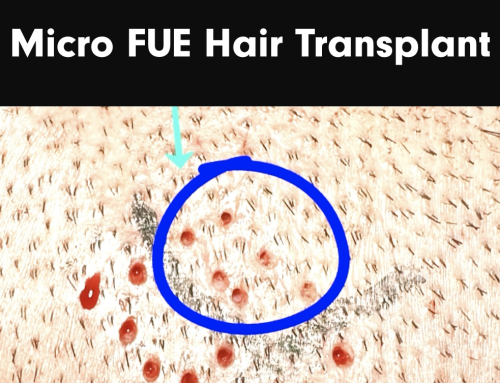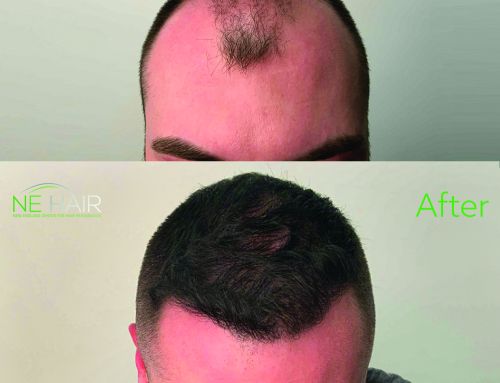Modern female and male hair transplantation has advanced to the point that patients can expect results that look every bit as natural as the hair they had when they were younger.
Due to the development of techniques such as follicular unit extraction, or FUE, transplanted hair is virtually indistinguishable from non-transplanted hair.
Ultimately, patients emerge from hair transplant surgery with heads full of their own, naturally growing hair that they can style, cut, and wear however they wish. Of course, there is more to hair transplantation than simply moving hair from one place to another.
There is a recovery process involved, one that can be lengthy and occasionally frustrating, especially if patients do not know what to expect. That is why, at our hair restoration center in Boston, follicular unit extraction recovery is discussed in detail with prospective patients during their initial consultations. Patients know exactly what to expect before, during, and after hair transplantation surgery before they commit to undergoing FUE.
Initial Discomfort
After any surgical procedure, some discomfort should be expected, at least initially. This is true even of hair transplantation using the FUE method; however, this discomfort is generally mild to moderate and can be controlled with medication. Discomfort usually gives way to numbness in the treatment area over the course of a few days. Our surgeons can prescribe pain and sleep medications if necessary during the recovery period.
Making Your Recovery as Comfortable as Possible
The efficiency and comfort of your recovery period will depend heavily on how carefully you follow the post-surgical instructions provided to you by your hair surgeon. These instructions will not only help you to avoid infection, discomfort, and complications, but will also help you to achieve the best possible aesthetic results as quickly as possible. If you feel that you are unable to follow these post-surgical instructions, then you should probably consider postponing hair transplantation surgery until you can. While you may be provided with instructions specific to your case, there are certain instructions common to all FUE patients, including:
-
- Do not pick at the scabs that will form at the graft sites, as these are signs of healthy healing. They will fall off on their own.
-
- Do not shampoo your hair for a day or two after surgery. If your hair gets wet, as from sweat, do not dry it during this time. For at least two weeks after surgery, do not place your scalp directly under running water or scrub or scratch your scalp.
-
- Get as much sleep as you can. If you have difficulty sleeping, request sleep medication. Sleep upright as it will help to reduce swelling.
-
- Take all prescribed medication exactly as recommended.
-
- Avoid all strenuous activities, including exercise, for at least two weeks after surgery.






